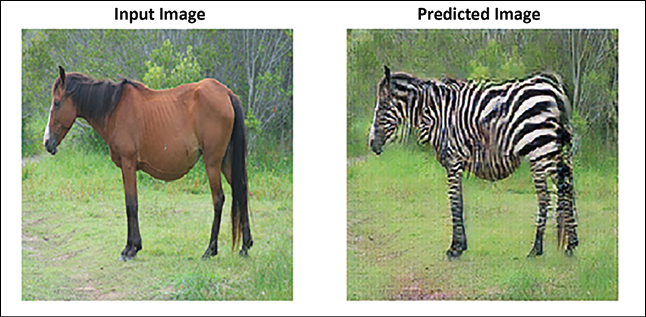Style transfer and image transformation
In addition to mapping artificial images to a space of random numbers, we can also use generative models to learn a mapping between one kind of image and a second. This kind of model can, for example, be used to convert an image of a horse into that of a zebra (Figure 1.7), create deep fake videos in which one actor's face has been replaced with another's, or transform a photo into a painting (Figures 1.2 and 1.4):21

Figure 1.7: CycleGANs apply stripes to horses to generate zebras22
Another fascinating example of applying generative modeling is a study in which lost masterpieces of the artist Pablo Picasso were discovered to have been painted over with another image. After X-ray imaging of The Old Guitarist and The Crouching Beggar indicated that earlier images of a woman and a landscape lay underneath (Figure 1.8), researchers used the other paintings from Picasso's blue period or other color photographs (Figure...



























































